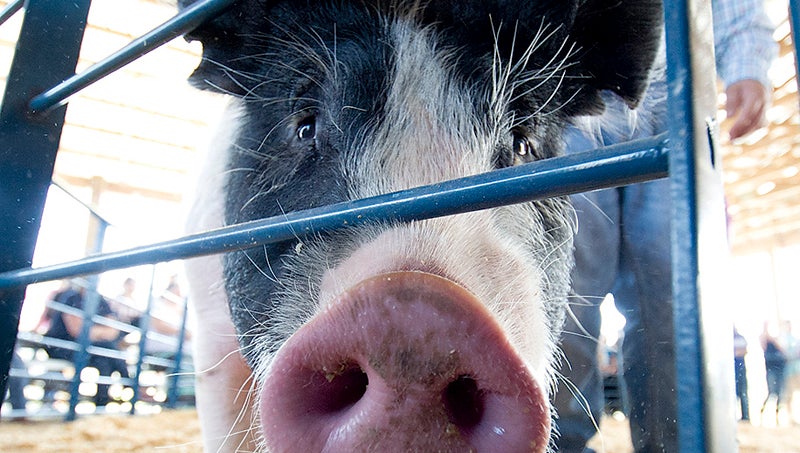Making an honest living
Published 4:36 pm Tuesday, April 11, 2017

- BIG BUCKS: North Carolina ranks third in the nation in the hog farming industry, which accrued about $2.3 billion in 2015. (Ashley Vansant/Daily News)
Hog farming is a way of life for many North Carolinians. The state is ranked third in the nation in the hog industry, grossing $2.3 billion in 2015, according to the U.S. Department of Agriculture.
Recent legislation, which would limit hog farmers’ liability for animal waste smell, passed the state House of Representatives on Monday and will make its way to the Senate. Liability would be limited to lost rental or property value in neighboring areas and couldn’t exceed the property’s market value.
Supporters of the amended legislation maintain that odors come with the territory of hog farming, and farmers shouldn’t be penalized for making a living on their property. Opponents of limited liability argue that the strong smells and subsequent flies are a detriment to neighboring areas and significantly lower the area’s property value.
This issue was brought to light following a lawsuit against Smithfield Foods, specifically targeting its hog production in North Carolina. While hog farming remains the largest topic of debate, the legislation would apply to other farm animals, as well. Legislators also added an amendment stating any new legislation could not be applied to the current lawsuits in progress.
Issues surrounding hog farming are no doubt complex, and both sides have a valid argument. However, farmers should face limited liability when it comes to unwanted smells. They are simply making an honest living. Yes, it is unfortunate that property values may suffer, but it’s not a reason to punish a farmer for no real wrongdoing.
When that animal waste infiltrates the water supply and/or causes health problems, it’s another story. But unpleasant smells do not warrant harsh punishment.
Hog farming is just plain smelly, but it’s also a billion-dollar industry for the state. It’s important to the state’s economic success as a whole.
Lawmakers and municipalities should look at avenues to amend falling property values because that issue is of merit. Punishing the farmers, however, is not the way to go.




